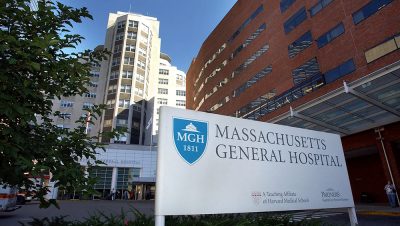Gov. Charlie Baker signed a Nov. 10 $3.76 billion spending package that will aid hospitals and schools, increase affordable housing and improve environmental and transportation infrastructure.
A large portion of the funds come from the American Rescue Plan Act, a federal financial stimulus given to states for pandemic relief, according to the governor’s press release. The FY22 budget surplus will also fund some of these projects.

“The significant investments in this bill will fortify health and human services, advance clean energy and resiliency efforts, expand affordable housing production, and support Massachusetts communities, businesses, and families,” Baker wrote in his signing letter.
The largest investment of $850 million will go toward “fiscally strained” hospitals and community health centers around the state, according to the press release.
Other major investments include $112 million to improve safety at the MBTA, $153 million for businesses in need of relief and $315 million toward the High-Quality Early Education & Care Affordability Fund.
State senator Will Brownsberger spoke about why this bill is significant.
“(This bill’s) an effort to keep a number of things moving,” he said. “There’s a whole lot of needs out there, and we’ve tried to balance available resources to make progress on each one of them.”
Brownsberger also spoke about the portion of the bill allocated for the MBTA.
“The big picture is the MBTA has a lot of safety needs, the question is can you spend the money to address them,” Brownsberger said. “If I’m hearing from the T that they can absorb more money, I want to send them more money.”
$300 million will be allocated toward the creation and acquisition of affordable housing units.
Eric Shupin, director of public policy at Citizens’ Housing and Planning Association, said CHAPA is “very pleased” with the bill.
“$100 million was directed toward affordable homeownership production through the Commonwealth Builder Program, and it will build new homes for first-time homebuyers to buy in vulnerable communities like Lawrence and Lowell, Fall River.” Shupin said.
The funds will particularly help Black, indigenous and people of color in these cities that were also heavily impacted by COVID-19, he added.
Another $100 million will be allocated to the Affordable Housing Trust, Shupin said, which would create housing for the lowest income families making under 30% of the area median income.
The last $100 million will go toward the creation of more workforce housing, which MassHousing defines as “rental housing that is affordable for households whose incomes are too high for subsidized housing but are priced out by market rents.”
“We really are looking at it as a once in a generation opportunity for making these kinds of really big investments,” he said.
Shupin said there hasn’t been an economic stimulus package directed for affordable housing since last year’s package of $600 million in ARPA funds, but that there likely won’t be any large spending bills such as this one in the future.
“The state has the chance now to build off that success and invest even more, and that way the impact can be more sustained and longer, other than just having it be a one-off opportunity,” he said.





















































































































